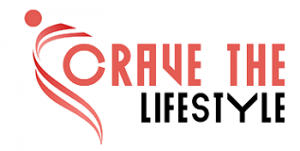Growing older populations demand specialized healthcare designed to meet their unique needs. Geriatric assessment in counseling includes evaluating an elderly patient’s physical, mental, and social health. Geriatric assessment is crucial for identifying health issues that may be overlooked during routine medical exams and providing personalized care plans that address each patient’s specific needs.
- Functional status: This aspect assesses the older adult’s ability to perform daily living activities independently activities such as bathing, dressing up, or walking around without assistance. By evaluating functional ability through activities of daily living (ADLs) and instrumental activities of daily living (IADLs), caregivers can identify areas where patients require help with specific tasks. For instance, if an elderly person experiences difficulty getting dressed due to arthritis or other mobility issues, occupational therapy sessions can help improve their independence.
- Cognitive function: Cognitive decline is common among older adults and can manifest as dementia or other age-related illnesses that affect memory retention or decision-making capabilities negatively. An evaluation by a specialist can reveal early signs of cognitive impairment even before symptoms become apparent. Early detection allows for timely interventions like medications or lifestyle changes that can slow down disease progression.
- Nutritional status: Malnutrition is prevalent among older people who live alone because of limited mobility or difficulty cooking, making it challenging to access food. Geriatric assessment in counseling can identify nutritional deficiencies and recommend dietary changes or supplements that improve the patient’s health. There is an increased risk of toxic interactions and adverse reactions in older adults who take multiple medications for various health issues.
comprehensive geriatric assessments in Ontario also helps caregivers recognize elder abuse signs such as financial exploitation, neglect, physical abuse, psychological abuse, and sexual abuse among others. Conducting comprehensive assessments on these areas of elder care services provided by certified professionals specializing in geriatrics care gives insight into how best to address each concern uniquely.
Benefits of geriatric assessment
Geriatric assessments have numerous benefits for both patients and their loved ones. These include:
- Improved quality of life: Identifying problems early through geriatric assessments allows for timely interventions that can significantly improve quality-of-life measures for seniors.
- Better medication management: By assessing medication regimens regularly and monitoring any side effects or interactions between different drugs prescribed by physicians ensures seniors’ safety while promoting better health outcomes.
- Enhanced safety and mobility: Assessing functional ability through ADLs/IADLS enables caregivers to identify areas where patients require help with specific tasks. Enhancing mobility and safety by providing assistive devices like wheelchairs, walkers, or bed rails minimizes the risk of falls and other accidents.
- Reduced hospitalizations and healthcare costs: Geriatric assessments allow for early detection of health problems that may lead to hospitalization or other expensive medical interventions. Timely interventions through geriatric care services save healthcare costs in the long run.
Geriatric assessments involve a multidisciplinary team approach, enabling better coordination between different healthcare providers involved in patients’ care. Schedule consultations with potential counselors to determine their experience level and whether they meet your needs. During this time, ask questions about their experience working with older adults and the treatment plans they would recommend based on your specific needs.


 How to Choose the Best Dental Products for Your Needs?
How to Choose the Best Dental Products for Your Needs?  Common Entry Points for Pests in Homes
Common Entry Points for Pests in Homes  Floral Arrangements: Pairing Flower Vases with Artificial Flowers
Floral Arrangements: Pairing Flower Vases with Artificial Flowers  Efficiency Hacks with Material Handling Equipment: Power Up Your Workshop
Efficiency Hacks with Material Handling Equipment: Power Up Your Workshop  Unlock Your Business Potential with the Leading Digital Marketing Agency in Bristol
Unlock Your Business Potential with the Leading Digital Marketing Agency in Bristol  The Ultimate Guide To Vulcan Cladding: Benefits And Applications
The Ultimate Guide To Vulcan Cladding: Benefits And Applications  Beyond the Diamond: Selecting Alternative Gemstones or Opting for No Stone at All
Beyond the Diamond: Selecting Alternative Gemstones or Opting for No Stone at All  7 Unique Tips to Hire the Best Accountant for Your Company
7 Unique Tips to Hire the Best Accountant for Your Company  Discovering The Development of Dating Apps
Discovering The Development of Dating Apps 